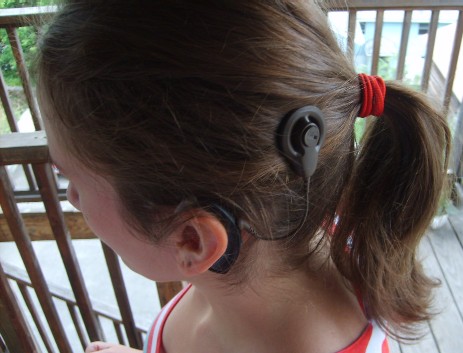*Updated October 24, 2018:
Since July 1, Maryland Medicaid now covers hearing aids and cochlear implants for adults, which were previously only provided under Medicaid to children (under 21 years old).
On October 12, Maryland finalized the regulation governing how these items will be covered (available in the Maryland Register here). In contrast to the proposed regulation, people for whom it is medically necessary may receive bilateral hearing aids, cochlear implants, and auditory osseointegrated devices (also known as bone-anchored hearing aids, or BAHAs) – one for each ear. The clinical coverage policy provides more guidance on what it means for these items to be medically necessary, but it factors in your need to use a hearing aid in school, work, or community settings. The Provider Manual will also assist medical providers and Medicaid beneficiaries in obtaining these crucial hearing devices.
Disability Rights Maryland (DRM) has been working with a team of pro bono attorneys at Sidley Austin on this issue for several years, as we believe that covering these items only for children was discriminatory.
We are hopeful that covering hearing aids and cochlear implants for adults on Medicaid will help thousands of Marylanders who desire these hearing devices in pursuing employment opportunities and engaging with their families and communities in a manner they choose.
The Governor’s Office of the Deaf and Hard of Hearing deserves appreciation for its efforts in support of this change, as do our pro bono partners at Sidley Austin. We congratulate the state in moving forward to provide these crucial opportunities for hearing services.
Original post – March 15, 2018:
DID YOU KNOW?
In Maryland, adults on Medicaid do not receive coverage for hearing aids or cochlear implants even when these devices are medically necessary for communication.
THE CHALLENGE:
Several years ago, Disability Rights Maryland (DRM) learned that Maryland Medicaid provides hearing aids and cochlear implants only to children through age 20. What happens when they grow up? And what about adults who want and need such devices for hearing loss occurring after age 21?
We learned about this issue from a new father who wanted to hear his newborn child. We learned how employment can be compromised by lack of communications. We heard from people who were frustrated at being denied a critical health care benefit.
We have been working with a team of lawyers at Sidley Austin LLP to advocate for Maryland to cover expanded hearing services for adults. Believing it legally required to cover and discriminatory to deny such services, DRM and Sidley Austin settled a case enabling an adult client to receive coverage for a cochlear implant and related services through Medicaid. We continued to advocate for others.
THE NEWS:
The Maryland Department of Health (MDH) has announced that starting in July 2018, Medicaid will cover medically necessary cochlear implants and hearing aids for adults. The Department has stated that it is working on regulations to implement these changes. The Governor’s Office of the Deaf and Hard of Hearing deserves appreciation for its efforts in support of this change, as do our pro bono partners at Sidley Austin.
NEXT STEPS:
MDH will issue proposed regulations – with a 30-day public comment period – that will determine how these devices are covered and how people may obtain them. Watch this page or review the Maryland Register to see when proposed regulations are issued. Your voice can matter on how Maryland covers these essential services.
We are hopeful that covering hearing aids and cochlear implants for adults on Medicaid will help thousands of Marylanders in pursuing employment opportunities and engaging with their families and communities in a manner they choose.

